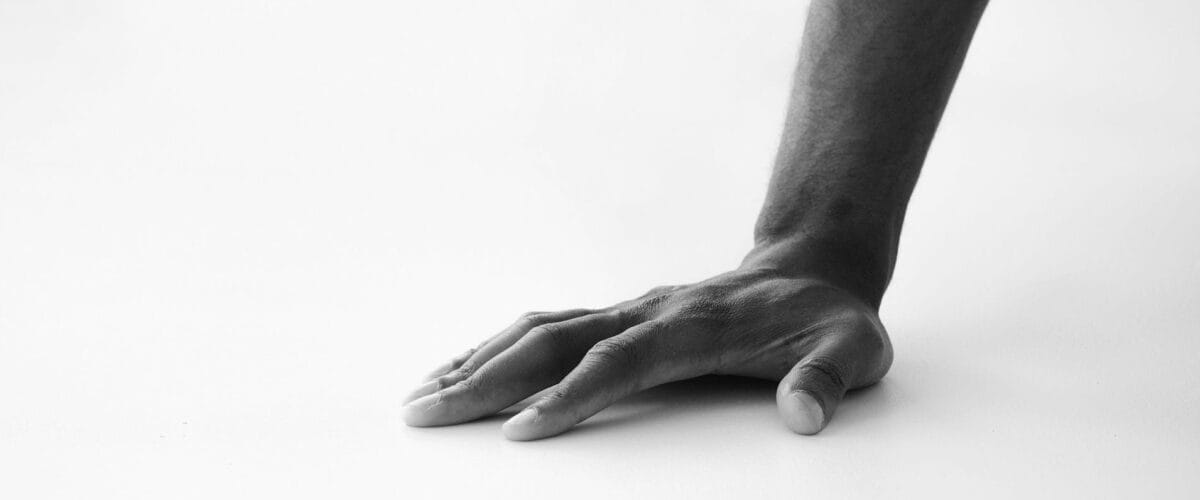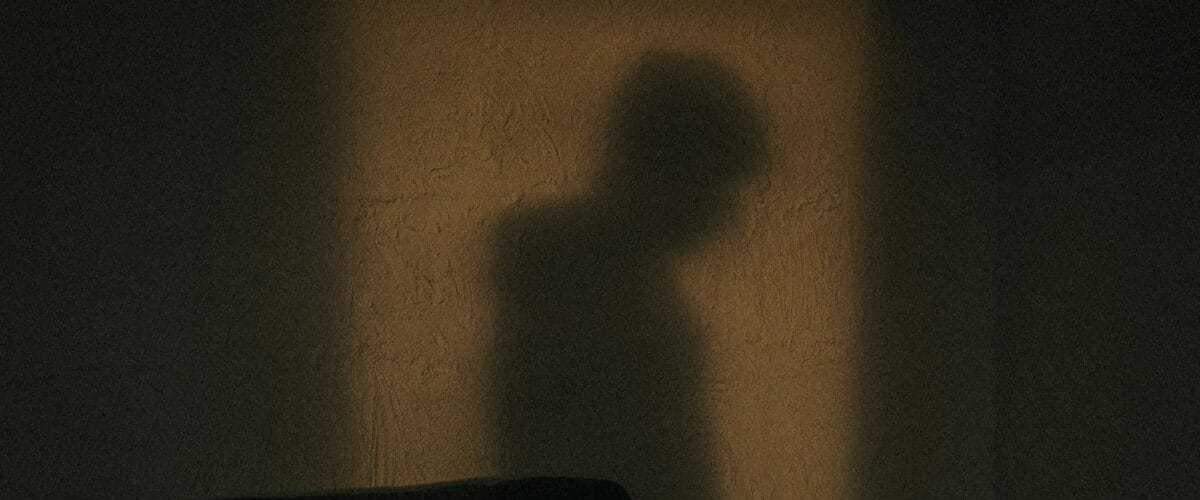Recently, I posted a YouTube link to a discussion that someone had with a Christian who wrestled with his faith. And this Christian was wrestling with his faith while having his own Christian YouTube channel, and of all things it was an apologetic channel, which means he studied and taught the principles behind why we believe what we believe. It’s one thing to be a believer your whole life, and then start to question things, but it’s another when you’re a believer studying and explaining the history of Christianity and the history of the Bible, and how, when, where, why the Bible was all put together, and scientific discoveries that point to a creator.
You would think such studies would only strengthen your belief, but the Devil knows how to plant seeds of doubt in anyone.
Eventually, this Youtuber, came out of this stronger, and he admitted that there are certain things in the Bible that make you scratch your head, but you can’t throw out the baby with the bathwater, so to speak, you have to come to the conclusion that there might be difficult passages or concepts in the Bible, and in God’s sovereignty, it happened, and we have to have faith that it did.
In some instances–as we’ve talked about recently a couple of weeks ago when I gave a sermon on The Evening News, there are still yet mysteries to be revealed. It isn’t just what happened in the Bible 2,000 or 4,000 or more years ago, but things that were written 2,000 or 4,000 years ago that still are to come.
A lot of people would say that The Book of Revelation is the most confusing book in the Bible, and I would agree. But it isn’t the weirdest book in the Bible–at least to me. I’d put Ezekiel at number three; Revelation at number two; and believe it or not–I’d put Genesis at number one.
Why?
Well, there are a lot of weird stories there, like a talking snake; Noah and the animals on the ark–Orville is going to be speaking about that, by the way, to a group of local Baptist pastors who will be meeting here this Tuesday for a monthly get-together.
I think his presentation and others from Answers in Genesis do a great job of bringing these stories to life and giving them some scientific and intellectual credence.
The Tower of Babel is another odd one. Sodom and Gomorrah is another. Abraham putting Isaac on the altar. Probably the only story in Genesis that doesn’t make you scratch your head is the story of Joseph.
But–I am not going to go there today; though it does make for a great sermon. Instead, I am going to go to one of the weird stories.
If you have your Bible, please turn with me to Genesis 32, and we are going to read 10 verses, from 22-32. So Genesis 32, starting with verse 22. I am going to end this sermon by reading Psalm 103 in its entirety, so if you would like to follow along, please put a bookmark there.
Genesis 32 to start, then Psalm 103 to close.
As you’re turning there, I found a quote from a black preacher named Tom Skinner, who had a similar experience as the YouTuber I just mentioned. He said, “I spent a long time trying to come to grips with my doubts, and suddenly I realized that I had better come to grips with what I believe. I have since moved from the agony of questions that I cannot answer to the reality of answers that I cannot escape. And it is a great relief.”
C.S. Lewis, in his book Surprised by Joy, said: “You must picture me alone in that room in Magdalen, night after night, feeling, whenever my mind lifted even for a second from my work, the steady, unrelenting approach of Him whom I so earnestly desired not to meet. That which I greatly feared had at last come upon me. In the Trinity Term of 1929 I gave in, and admitted that God was God, and knelt and prayed: perhaps, that night, the most dejected and reluctant convert in all England.
“I did not then see what is now the most shining and obvious thing; the Divine humility which will accept a convert even on such terms. The Prodigal Son at least walked home on his own feet. But who can duly adore that Love which will open the high gates to a prodigal who is brought in kicking, struggling, resentful, and darting his eyes in every direction for a chance of escape?
….”The hardness of God is kinder than the softness of men, and His compulsion is our liberation.”
So let’s take a look at a story from Genesis that I’m sure many of you are familiar with.
Scripture:
22 That night Jacob got up and took his two wives, his two female servants and his eleven sons and crossed the ford of the Jabbok. 23 After he had sent them across the stream, he sent over all his possessions. 24 So Jacob was left alone, and a man wrestled with him till daybreak. 25 When the man saw that he could not overpower him, he touched the socket of Jacob’s hip so that his hip was wrenched as he wrestled with the man. 26 Then the man said, “Let me go, for it is daybreak.”
But Jacob replied, “I will not let you go unless you bless me.”
27 The man asked him, “What is your name?”
“Jacob,” he answered.
28 Then the man said, “Your name will no longer be Jacob, but Israel,[Israel probably means he struggles with God–prophetic when you think about it] because you have struggled with God and with humans and have overcome.”
29 Jacob said, “Please tell me your name.”
But he replied, “Why do you ask my name?” Then he blessed him there.
30 So Jacob called the place Peniel,[Peniel means face of God.] saying, “It is because I saw God face to face, and yet my life was spared.”
31 The sun rose above him as he passed Peniel, and he was limping because of his hip. 32 Therefore to this day the Israelites do not eat the tendon attached to the socket of the hip, because the socket of Jacob’s hip was touched near the tendon.
By the way, speaking of such Hebrew traditions, again, I did not plan this, but you know it’s God when…I felt led to preach on Esther and later found out that The Feast of Esther, known as Purim, was celebrated by the Jewish community a week later. I think maybe God was speaking at that time.
What are we to get from the story of Jacob wrestling with God? It’s an odd story. I mean, God himself–probably Jesus–came in a human form in the Old Testament–this is known as a Christophany when that happens–and Abraham would have also seen Jesus in the beginning of Genesis Chapter 18 when it says “The Lord appeared to Abraham.”
So here, Jacob didn’t recognize this man as Jesus at first, but later on, did. Jesus comes down and wrestles–literally physically wrestles with someone, and seemingly cheats when he can’t win. I say seemingly, we’ll get to that later on, but first, I would imagine liberal churches probably have a fit with this story because they’d call it, “toxic masculinity” and say, God would never do such a thing as disgrace himself by rolling around in the dirt and wrestling with someone.
Well, he apparently did. Again, if you want to deconstruct the Bible, go ahead, but as for me, I don’t see anything of any greater authority than the Bible itself. Without going off topic, there are two terms–here’s more homework for you–look up the terms exegesis, and eisegesis. Liberal churches do one; and conservative churches do the other. And I think that will put a lot of what we believe and they believe into perspective by not what they read in the Bible, but how they read the Bible.
At any rate, Jacob may have wrestled with God in a literal sense, but at some point in our lives, many times perhaps, we have also wrestled with God. We’ve begged and pleaded and said, “God I want…or I need..or why hasn’t this happened…or why did this happen…or what’s wrong? I’ve been faithful to do as you’ve asked, and here I am. Stuck.” We bring our troubles and sorrows to God, we bring our life experiences, our hurts, our struggles, and life in general, and we say, “God, I need, fill in the blank.”
Eventually, morning comes, and look, Jacob got his hip knocked out of the socket and still wrestled with God and said, “I’m not letting go until…” And God honored that request.
But who really won?
God did. Why? Because His will still prevailed. But why did God wrestle Jacob in the first place, what does that mean for us? Simply put, it shows us that God is willing to wrestle with us. It means that we can give God our struggles; that we can complain to Him; that he’s willing to come down to our level–in a sense–and listen to our cries and our pleas and how much he’s hurt us and how angry we are at Him. And yet He is still willing to bless us.
In this passage, God could have stayed silent on his throne–which he sometimes does. He could have just appeared like an 80s action hero, popped that socket, and said, “Now don’t mess with me. I’ll be back.” Instead, God humbled himself, came down in the form of a man in Genesis, limited his power to that of a man, and demonstrated his willingness to wrestle with a human being and in the end bless him.
Strange story, isn’t it?
Jacob had a lot to be angry with God about. Maybe this was God’s way of letting Jacob get it all out, I don’t know. Here’s some more homework for you, go back and reread the story of Jacob. In it, you’ll find that he was a con artist who had been conned, a liar who had been lied to, and a manipulator who had been manipulated. In many ways, he lived up to his name Jacob, which literally means “heel-catcher.” Remember he came out of the womb holding onto his twin brother’s heel–which was prophetic from the start, and the name Jacob also carries the sense of “one who follows after to supplant or deceive.”
God, in his grace and mercy, had promised this sinful man that through him would come a great nation–Israel–through whom the whole world would be blessed (Genesis 28:10–15). But, through his twin brother Esau, came the Edomites who tried to destroy Israel. By the way, Islam, the sworn enemy of Israel, can be traced to Jacob and Esau’s uncle Ishmael–talk about family drama.
Their other uncle, Laban, had cheated Jacob–remember the story of how he conned Jacob into marrying his daughter Leah when Jacob wanted to marry his other daughter, Rachel, then made him work seven more years for Rachel’s hand? Of course, it didn’t help matters that his two wives, Leah and Rachel, had a conflicting relationship with each other.
But it doesn’t end there. Before we see Jacob wrestle with God, we see that Jacob is about to encounter Esau and is afraid that Esau is going to kill him. So, how does God help? You got it. He comes down and wrestles Jacob.
Can you imagine what in the world must be going through Jacob’s mind at this point? I think we’ve all been there. Like, “God, what are you doing? I need help, not a wrestling match!”
Gotquestions.org says: Alone in the desert wilderness, Jacob had the ultimate restless night. A stranger visited Jacob, and they wrestled throughout the night until daybreak, at which point the stranger crippled Jacob with a blow to his hip. Even then, Jacob held on. He must have known there was something supernatural about this stranger, because he demanded a blessing from him (Genesis 32:26). The stranger then gave Jacob a new name: Israel, which likely means “he struggles with God” (Genesis 32:28).
Another prophetic instance from the start.
The stranger gave the reason for Jacob’s new name: “Because you have struggled with God and with humans and have overcome” (Genesis 32:28). Jacob asks for the stranger’s name, but the man declines to give it—Jacob knew with whom he wrestled. And then Jacob receives what he wanted: a blessing (Genesis 32:29). Jacob limped for the rest of his life, but he “saw God face to face” (Genesis 32:30) and received God’s blessing. In his weakness, he was strong.
The next morning, God’s blessing of Jacob was evident. Esau, the brother Jacob had feared, received him gladly (Genesis 33).
Do you notice here that God comes to Jacob, not the other way around? It goes to show you that God is watching. It goes to show you that God does see us. From the way this reads, Jacob wasn’t like Jesus in the Garden of Gethsemane praying, dropping sweats of blood. Interesting juxtaposition here between Jesus and Jacob and the will of the Father. God blessed Jacob; God cursed Jesus. Galatians 3 says, “Christ redeemed us from the curse of the law by becoming a curse for us,”
Gotquestions goes on to say: In the end, Jacob does what we all must do. In his weakness and fear, he faces God. Jacob was separated from all others and from his worldly possessions, and that’s when he grapples all night for what is truly important. It was an exhausting struggle that left him crippled. It was only after he wrestled with God and ceased his struggling, realizing that he could not go on without Him, that he received God’s blessing (Genesis 32:29).
Let me read that last part to you again: “It was only after he wrestled with God and ceased his struggling, realizing that he could not go on without Him, that he received God’s blessing.”
Talking about Jesus in the Garden of Gethsemane, what did he pray? “Father, if you are willing, take this cup from me; yet not my will, but yours be done.”
In the end, as we wrestle and pray and anguish over what we are going through, we have to let go and say, “Lord, not my will, but yours be done.” Or as the old saying goes, “Let go and let God.”
If you want to follow along with me in Psalm 103, you can go ahead and turn there. As you do, let me read to you this from an article in Christianity Today.
The author, Jeremy Berg writes about his struggles with God.
In it, he said, “The strange truth is: God can’t use you unless you’re broken. Yes, it is often true that “hurt people hurt other people,” but it’s equally true that “graced people grace other people” and “healed people heal other people.””
….What is the sign that one has been touched and blessed by an encounter with the Living God? They get a big house, much wealth, and an easy, carefree life? Nope! The tell-tale sign that someone has brushed up against God’s awesome presence is often this: They walk with a spiritual limp.
They have scars from all-night shouting matches with God. They have arm wrestled with God in the silence of God’s apparent absence. They have grabbed onto God and refused to let go even when God’s presence sometimes seems to bring more pain than comfort. They know that, contrary to popular belief, Jesus was right when he said, “Blessed are those who mourn; these are the ones who will be comforted.
“….Yet, I think God wants feisty followers who aren’t afraid to “wrestle” with Him and wrestle out loud with our faith and doubts. This is the kind of faith we see displayed in the Psalms as David lets his praises and frustrations known to God.”
And speaking of Psalms, I want to close by reading you this psalm in its entirety. This is Psalm 103. It says:
1 Praise the Lord, my soul;
all my inmost being, praise his holy name.
2 Praise the Lord, my soul,
and forget not all his benefits—
3 who forgives all your sins
and heals all your diseases,
4 who redeems your life from the pit
and crowns you with love and compassion,
5 who satisfies your desires with good things
so that your youth is renewed like the eagle’s.
6 The Lord works righteousness
and justice for all the oppressed.
7 He made known his ways to Moses,
his deeds to the people of Israel:
8 The Lord is compassionate and gracious,
slow to anger, abounding in love.
9 He will not always accuse,
nor will he harbor his anger forever;
10 he does not treat us as our sins deserve
or repay us according to our iniquities.
11 For as high as the heavens are above the earth,
so great is his love for those who fear him;
12 as far as the east is from the west,
so far has he removed our transgressions from us.
13 As a father has compassion on his children,
so the Lord has compassion on those who fear him;
14 for he knows how we are formed,
He remembers that we are dust.
15 The life of mortals is like grass,
they flourish like a flower of the field;
16 the wind blows over it and it is gone,
and its place remembers it no more.
17 But from everlasting to everlasting
the Lord’s love is with those who fear him,
and his righteousness with their children’s children—
18 with those who keep his covenant
and remember to obey his precepts.
19 The Lord has established his throne in heaven,
and his kingdom rules over all.
20 Praise the Lord, you his angels,
you mighty ones who do his bidding,
who obey his word.
21 Praise the Lord, all his heavenly hosts,
you his servants who do his will.
22 Praise the Lord, all his works
everywhere in his dominion.
Praise the Lord, my soul.
So as we conclude, I want to focus our attention on praise. We wrestle with God for any number of reasons perhaps for a season, or perhaps throughout our lifetime. Life is life, and it’s a rollercoaster ride.
We have our struggles, we have our mountaintops and we have our valleys of darkness. But we have a good God that allows us to wrestle with Him; but in the end, we need to humbly say, “Not my will, but yours be done.” And when we do, when we surrender to Him, with a limp hip, we will receive a blessing, and we will have reason to praise.
What would have happened if Jacob didn’t give in? Could he have not surrendered? I don’t think so. God popped that hip for a reason. We reach a point where because God loves us so much, he makes sure we can’t win. He pops that hip and we walk with a spiritual limp so that His sovereign, divine, and perfect will comes through for us. Think about that.
This is an updated edition of a post originally published on First Baptist Church of Watkins Glen
Featured Image by Roma Kaiuk on Unsplash



















